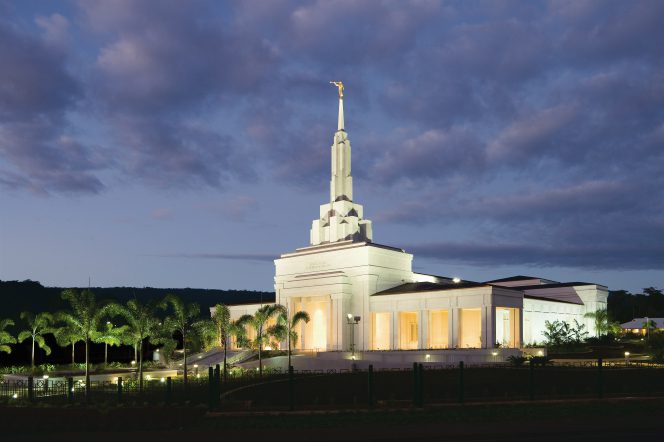
Curiously, despite its image in America today as an all-white religion, Mormonism has long been a significant presence in Polynesia.
It seems that Stephen Smoot and I have been thinking along parallel lines this week. Here’s his very good new blog entry:
“Do Mormons ‘Just Believe’ Their Religion?”
In certain ways, it treats the same issue that my Deseret News column for today discusses. In the print edition, my article is titled “Any good reasons to believe?” For some mysterious cause — probably connected with the fact that my usual editor has been out of town since yesterday, and that her role has been temporarily assumed by another — my column has not yet been posted online. I assume that it will soon appear in the electronic edition of the Deseret News. Maybe tomorrow.
***
“Holy Envy: What This Catholic Learned about Missionary Work from Mormons”
***
I highly recommend this podcast interview — it’s just slightly more than an hour and ten minutes long — with Don Bradley:
***
Here’s something to look forward to:
“Book Notice: D. Charles Pyle, I have Said Ye Are Gods”
***
A bit more from John W . Welch, et al., eds., Knowing Why: 137 Evidences That the Book of Mormon Is True (American Fork: Covenant Communications, 2017):
“Why Did an Angel Reveal the Name of Christ to Jacob?” (91-93)
According to Susan Easton Black, the Book of Mormon uses over one hundred different “name-titles” for the Savior. And various studies have indicated that different Book of Mormon prophets tend to prefer different terms, often reflecting their biographies or life experiences. Jacob, for example, who was a consecrated priest, seems to favor names or titles connected with the priestly duties of the temple.
“When the circumstances of the individual prophets are considered and it appears that the names and titles chosen naturally fit the context of their testimonies and teachings of Jesus Christ, it is hard to imagine that these prophetic expressions are fabrications. Even seen as fiction, this subtle consistency is a clear indication of compositional sophistication beyond Joseph Smith’s writing ability. While seen as the genuine writings of real individual prophets, this intimate familiarity with particular attributes of Christ rings true as those individuals testify within the pages of this testament of Jesus Christ.”
“Who Are the Witnesses of Christ in 2 Nephi?” (94-95)
The testimonies of Nephi, Jacob, and Isaiah are especially prominent in the first pages of the Book of Mormon. This doesn’t appear to be merely coincidental, because they lay out a “theology of anticipation,” expecting the coming of the Messiah.
















